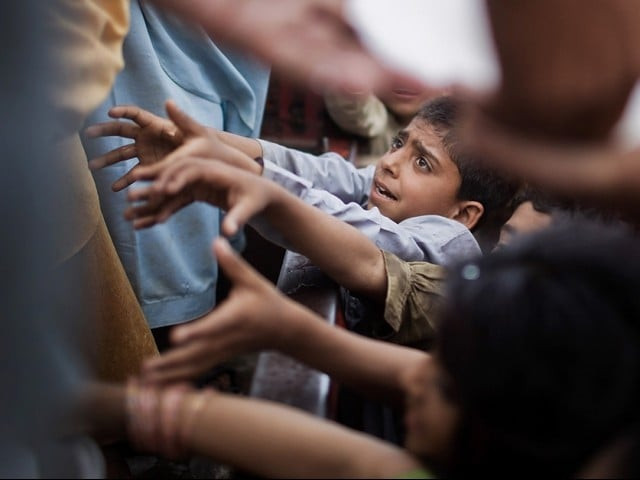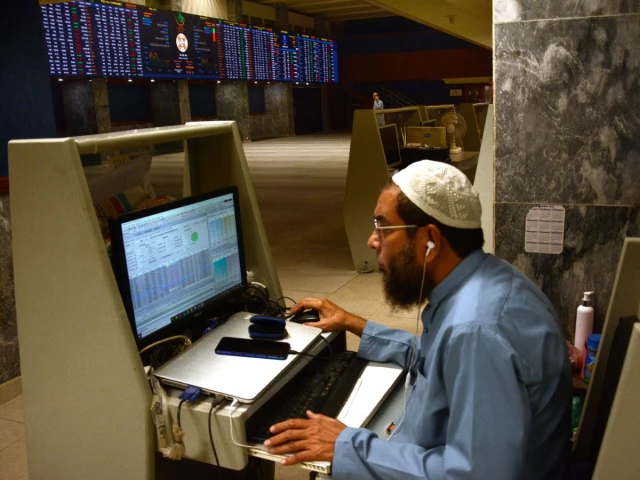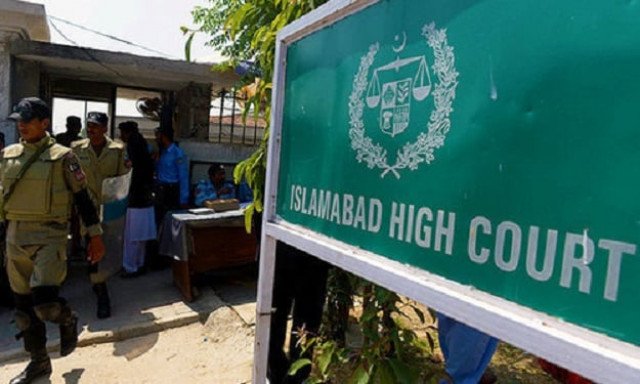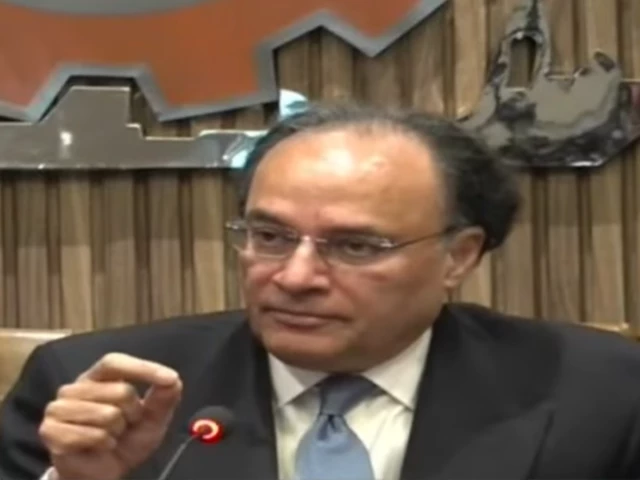Business
Poverty reduction stalls despite growth | The Express Tribune

Fiscal, labour, social reforms can stop Pakistan sliding back into poverty trap after 20 years of progress, say expert
Pakistan would soon move to a path of poverty reduction and improvement in other socio-economic indices, Dar says. PHOTO: REUTERS
KARACHI:
Pakistan’s progress in poverty reduction has stalled after nearly two decades of steady gains, experts warned at the Fifth Annual International Conference of the School of Economics and Social Sciences (SESS), Institute of Business Administration (IBA), held on November 13-14, 2025, under the theme “A New Global Order, Yet Again.”
During a panel titled “Pakistan at a Crossroads: Poverty, Growth, and the Global Shift,” economists, policymakers, and development experts discussed the World Bank’s first comprehensive Poverty Assessment Report in twenty years. The report shows that while Pakistan made remarkable progress between 2001 and 2015 – reducing poverty from 64.3% to 21.9% – those gains have stalled or reversed since 2018-19 due to overlapping economic, political, and environmental shocks.
The study attributes earlier success mainly to a shift from agricultural to non-agricultural income, driven by labour migration into services and non-manufacturing sectors. Nearly 57% of poverty reduction came from non-agricultural labour income. But this transition has now reached its limits. Most new jobs are low-wage and low-productivity, concentrated in informal retail and services that fail to lift households from vulnerability.
Remittances, once a crucial poverty buffer, are also losing impact. Though still vital for foreign exchange, their benefits are uneven. The poorest 20% of households rarely send workers abroad and rely on domestic migration to cities. Adjusted for inflation, real remittances are declining, reducing poor families’ resilience to shocks. Experts noted that Pakistan’s labour market remains highly informalabout 85% of employment offers no social protection. Nearly half the population is outside the labour force, while female participation remains stagnant at 25%, largely in low-paid farm work. Even more worrying, 37% of youth are neither in education, employment, nor training, the highest NEET rate in South Asia.
Panellists warned that such fragility leaves millions hovering just above the poverty line. “A single shock, whether inflation, illness, or job loss, can push entire families back into poverty,” said Maria Qazi of the World Bank. Public service access is also weak: only 4.3% of households have daily access to piped water, revealing deep structural flaws in human development.
Fiscal and policy challenges dominated much of the debate. Wasif Ali Memon, Chairman of the Sindh Revenue Board, called for progressive taxation and decentralised revenue collection. “Pakistan’s fiscal structure depends too heavily on indirect taxes and an informal economy that makes up nearly 80% of GDP,” he said. “We must broaden the tax base, raise the tax-to-GDP ratio, and strengthen institutional capacity to finance poverty reduction sustainably.”
Christina Wieser, Senior Economist at the World Bank, urged policymakers to go beyond short-term cash transfer programmes like the Benazir Income Support Programme (BISP). “BISP cushions the poorest households,” she said, “but sustainable poverty reduction needs jobs, education, and gender-inclusive economic opportunities.” Economist and journalist Khurrum Husain noted that Pakistan’s growth has become disconnected from poverty outcomes. “We saw poverty stall even during growth years,” he said. “Our growth is consumption-driven and informalit doesn’t create sustainable livelihoods. The rich pay less and gain more.” Without redistributive reform, he warned, inequality will widen further.
Economist Asad Syed described Pakistan’s economic model as “dependent on geopolitical rents rather than productive investment.” He said the country’s investment rate, barely 2% of GDP, is far below regional peers. “We must move from speculative profits to a productive, equitable model of growth,” he urged, warning that dependence on external rents and neoliberal policies deepens inequality. The conference’s concluding session, “What is New in the New World Order?” shifted focus to global dynamics. Neelum Nigar of the Ministry of Finance said the world is now “multipolar, fragmented, and interdependent,” and urged developing nations to reassess their place in global governance. “The question is not just who participates,” she said, “but who benefits.”
Business
From first salary to first investment — Why young Indians are choosing gold

New Delhi: Gold continues to remain the most trusted investment option among young Indians, even as access to financial products like mutual funds, stocks, and cryptocurrencies expands, according to a recent consumer survey.
The Smytten PulseAI survey, conducted among 5,000 consumers aged 18–39, found that 62 percent of respondents chose gold as their preferred investment, highlighting the metal’s enduring appeal among Gen Z and Millennials.
When asked how they would invest Rs 25,000, about 61.9 percent said they would choose gold, far ahead of mutual funds (16.6 percent), fixed deposits (13 percent), stocks (6.6 percent), and crypto (1.9 percent), the survey showed.
The findings also indicate that gold buying is becoming more personal and investment-driven rather than tradition-led. Around 66.7 percent of respondents said their gold purchases were primarily their own decision, reflecting a shift in mindset among younger investors.
Another notable trend is the move toward smaller and more frequent purchases. Nearly 62 percent of recent gold purchases were below 5 grams, suggesting that younger buyers are entering the market gradually instead of making large, occasional purchases.
Gold’s appeal becomes even stronger during uncertain economic conditions. The survey found that 65.7 percent of respondents consider gold the safest investment option compared with bank savings, mutual funds, or equities.
For many young earners, gold is no longer bought only for weddings or family occasions. Nearly 24 percent said their first gold purchase was linked to receiving their first salary, while 23.9 percent bought gold as an investment decision, signalling changing motivations behind gold ownership.
Overall, the survey highlights that while investment behaviour among young Indians is evolving, gold continues to play a central role as a trusted store of value and financial safety net.
Business
PPF account rules: Why you can open only one PPF account and what it means for your tax savings

New Delhi: The Public Provident Fund (PPF) is one of India’s most popular long-term, government-backed savings schemes. But many investors often wonder whether they can open multiple PPF accounts to increase their tax-saving investments. The government’s rules are clear — an individual can hold only one PPF account in their own name.
Opening additional PPF accounts in different banks or post offices is not permitted under the PPF Scheme. If more than one account is discovered in the same person’s name, the extra account will be treated as irregular and may have to be closed, with interest on the additional account typically not paid.
However, the rules allow parents or guardians to open a separate PPF account for a minor child. Even in such cases, the total annual contribution across the individual’s own account and the minor’s account cannot exceed Rs 1.5 lakh in a financial year, which is the maximum investment limit under Section 80C.
The PPF scheme remains a long-term savings instrument with a 15-year maturity period, offering tax-free interest and government-guaranteed returns. Investors can deposit a minimum of Rs 500 and up to Rs 1.5 lakh annually, making it a widely used option for retirement and tax planning.
In short, while you cannot open more than one PPF account in your own name, you can still invest in separate accounts for eligible family members such as minor children, within the overall contribution limits set by the government.
Business
‘Very successful emerging economy’: UN chief António Guterres hails India as AI Impact Summit host – The Times of India

UN Secretary-General Antonio Guterres on Saturday endorsed India as the perfect host for the AI Impact Summit 2026 starting Sunday, praising the nation’s growing global influence and successful economy. The first-ever AI summit in the Global South will be held from February 16-20, bringing together world leaders, tech CEOs, and policymakers to discuss artificial intelligence’s future while ensuring its benefits reach everyone globally.In an exclusive interview with PTI, Guterres strongly backed India’s initiative, saying “I strongly congratulate India for organising this Summit. It’s absolutely essential that AI develops itself to the benefit of everybody, everywhere and that countries in the Global South are part of the benefits of AI.”
The UN chief warned against AI becoming a privilege of developed nations or limited to superpowers like the US and China. He emphasized that AI must serve as “a universal instrument for the benefit of humankind.”Speaking about India’s role in global affairs, Guterres praised the country’s position as a key emerging economy. He highlighted recent developments like India’s trade agreement with the European Union as positive steps toward true global multipolarity. “The role of India, (which) is today a very successful emerging economy that is having a bigger and bigger role in not only the global economy but in its influence in global affairs, India is the right place to have this Summit and to make sure that AI (is) being discussed in depth, in all its enormous potential and also in all its risks, but that AI belongs to the whole world and not only to a few,” he said.Further praising India, he added, “I see India in the centre of those emerging economies, and this is something I would be delighted to discuss with Prime Minister Modi because I have a lot of hope for the role that India can play in shaping this multipolar world.”The UN chief expressed his “frustration” with the Security Council’s ineffectiveness and called for fundamental reforms to better represent today’s world, referring to India playing a central role in shaping a multipolar world order.“There are two things we need to avoid in the world. We need to avoid the system in which there is total hegemony by only one power or a system in which the world is divided between two superpowers,” Guterres also said.Guterres also shared his personal appreciation for India, describing his fascination with the country’s rich history and cultural influence. He mentioned how he’s currently reading about India’s historical impact on various regions, from China to Southeast Asia and even the Mediterranean during the Roman Empire.The summit will see presence from various world leaders, including French President Emmanuel Macron, Brazilian President Luiz Inacio Lula da Silva, and tech leaders like Google CEO Sundar Pichai, Adobe CEO Shantanu Narayen, and Anthropic CEO Dario Amodei.The summit will also feature other UN leaders, including Human Rights Commissioner Volker Turk and Technology Envoy Amandeep Singh Gill, focusing on the summit’s core themes of ‘People, Planet and Progress’.
-

 Entertainment1 week ago
Entertainment1 week agoHow a factory error in China created a viral “crying horse” Lunar New Year trend
-

 Business5 days ago
Business5 days agoAye Finance IPO Day 2: GMP Remains Zero; Apply Or Not? Check Price, GMP, Financials, Recommendations
-

 Tech1 week ago
Tech1 week agoNew York Is the Latest State to Consider a Data Center Pause
-

 Tech1 week ago
Tech1 week agoNordProtect Makes ID Theft Protection a Little Easier—if You Trust That It Works
-

 Fashion5 days ago
Fashion5 days agoComment: Tariffs, capacity and timing reshape sourcing decisions
-

 Business1 week ago
Business1 week agoStock market today: Here are the top gainers and losers on NSE, BSE on February 6 – check list – The Times of India
-

 Business1 week ago
Business1 week agoMandelson’s lobbying firm cuts all ties with disgraced peer amid Epstein fallout
-

 Tech5 days ago
Tech5 days agoRemoving barriers to tech careers










